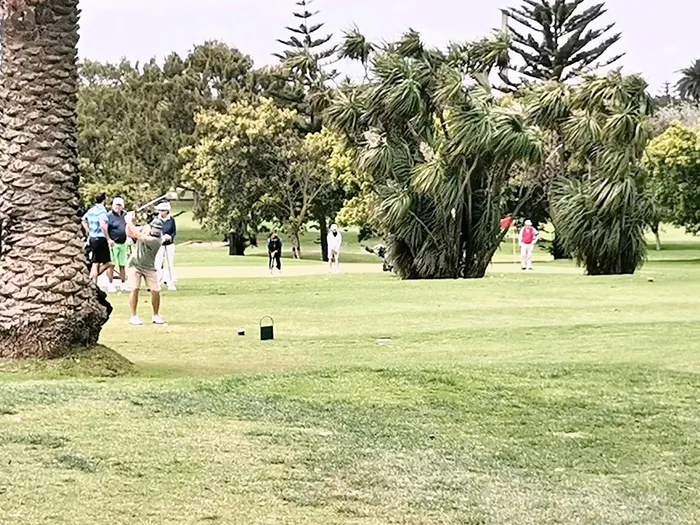Council to decide on lease

Rondebosch Golf Club
Housing activists have slammed the City’s decision to grant in-principle approval for the renewal of Rondebosch Golf Club’s lease.
The council will today, Thursday October 29, decide whether or not to approve the controversial lease renewal for the golf club.
This comes after the mayoral committee granted in-principle approval for a 10-year lease with the golf club paying R10 000 a year.
The City said it had included a two-year cancellation clause should council contemplate a different use for the land.
“The current lessee will be responsible for the estimated R6 million annual maintenance and security cost of the property, aside from the R10 000 per annum golf tariff applicable to all courses on City land for the 2020/21 financial year,” the statement read.
Activists occupied the golf course in March and on Human Rights Day last year, calling on the City to use the land for housing. They have accused the City of failing to free up public land for affordable housing for the poor and working classes.
Earlier this year, the City called for the public to comment on its plans to renew the golf club lease for a nominal R1 058 a year, since increased to R10 000.
The City said it had received 1 682 objections from Ndifuna Ukwazi, including one formal objection, 316 signed submissions, 1 116 online submissions, and 249 petition signatures.
Further objections were received through a 100-signature petition and 45 general public online submissions.
“Objections related to the use of the site for housing, addressing spatial inequality, and the golf course tariff,” the City said.
Michael Clark, a researcher for Ndifuna Ukwazi, said the recommendation demonstrated short-sightedness on the part of the City.
“We are aware of at least 1 682 objections that were submitted by the public, calling for the City to not renew the lease, but rather to redistribute this land. This followed a campaign by Ndifuna Ukwazi supported by Amandla.mobi, Reclaim the City and the Social Justice Coalition calling for the land to be sensitively developed as an inclusive new neighbourhood with mixed-income housing (with a significant component of affordable housing), truly public open space and offices, shops, schools and social amenities,” he said.
Vast tracts of prime public land continued to be tied up in inefficient, exclusive and unjust uses rather than being used to tackle spatial apartheid, he said.
Development Action Group (DAG) spokeswoman Kundai Nyamutenha said they were disappointed with the City’s decision.
“We call on the City to honour its constitutional obligations to strategically utilise public land to meet the housing needs of the most vulnerable,” she said.
DAG had spent three decades trying to get the City to make public land available to meet the demand for affordable housing and right spatial imbalances, she said.
In it’s statement, the City said the land - zoned for community facility use and public open space - was prone to flooding and was unsuitable for housing. The golf course acted as a flooding buffer and helped to manage water pollution in the Black River ecosystem.
“While the Rondebosch site has severe development constraints, lease renewals for golf courses on City-owned land should not be confused with a final decision on whether or not future housing would be built on a property, which is a separate legislative process entirely,” the statement said.
Mr Clark said Ndifuna Ukwazi’s feasibility study had found the site could support 1 433 affordable homes.
“We call on the City to take a radical stance for spatial justice by urgently developing the suitable land (the section which is not below a floodline) as a dense inclusive neighbourhood,” he said.
Golf club general manager Corne Pelser said they started negotiations with the City in 2014.
“Should the lease be extended by the full council it will enable us to continue providing a facility that generates employment for our 35 members of staff as well as assisting us play our part in generating the much needed tourist income for Cape Town,” he said.